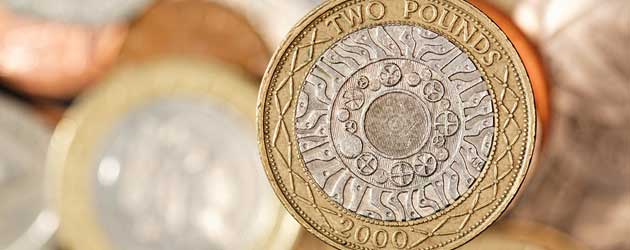
The Pound could fall out of favour with investors later on this afternoon if Bank of England Governor Mark Carney pours cold water on hopes of an interest rate hike before 2016.
At 13:45 this afternoon the BoE Governor is set to give a speech on the UK economy. It is widely anticipated that Carney will attempt to temper interest rate hike bets, but it remains to be seen whether markets will listen or not. The premise is simple: Carney wishes to persuade investors that interest rates will remain at the current record low of 0.50% for the foreseeable future because he hopes that this will help to ease lending conditions, boost business morale, and spur economic growth in the United Kingdom.
Earlier this month the BoE Governor issued a statement of forward guidance, communicating that the benchmark interest rate would not be raised until the UK Unemployment Rate falls to 7.0%. Due to the fact that the ageing British population is increasing all the time it is very unlikely that the jobless rate will fall from 7.8% to 7.0% in the next two years; the moderate amount of job creation taking place at the moment is merely acting to hold the percentage rate still, in order to bring the rate down a massive amount of new jobs will need to be generated.
This guidance alone would have been taken as very bad news for the Pound because it would have made Sterling unattractive to speculative traders looking to profit from future rate hikes. However, the BoE also issued a series of potential circumstances that would “knockout” the Unemployment target and trigger a higher benchmark interest rate. The “Knockouts” stipulate that if inflation persists in being 0.5% higher than the 2.0% target for 18-24 months, or if other economic conditions deem it necessary, the BoE is likely to raise rates. The “Knockouts” changed everything: rather than taking the Central Bank statement as a dovish indicator markets interpreted it as the unveiling of an exit strategy, causing Sterling to soar across the board against its major currency rivals.
However, Carney did not intend to bolster demand for the Pound, if anything he would have rather the domestic currency weakened in order to give UK exports a slight advantage in competitiveness. With Sterling strengthening and markets anticipating a rate hike in 2015, a year ahead of the BoE’s intended schedule, lending costs in Britain have not fallen; rather they have actually risen. This is likely to have an adverse affect on business investment and job creation, prompting the need for the Central Banker to clarify the BoE’s commitment to low rates.
If Carney is seen to be happy with the current market reaction to the forward guidance policy then Sterling can be expected to rally. However, if, as is widely expected, the Governor attempts to play down rate hike speculation and investors are convinced by his rhetoric then it is entirely possible that the Pound will suffer heavy losses against its rivals.
GBP/USD is looking particularly wobbly after failing to sustain itself over 1.5700 last week. Many analysts estimate that the Pound’s recent rallies have been overdone and expect the Sterling / US Dollar exchange rate to slide back down towards 1.5250 in the near future. With the conflict in Syria on the verge of escalating further the safe haven US Dollar is also benefitting from defensive inflows at the moment. The ‘Greenback’ is also likely to rally during September if the Federal Reserve does in fact decide to taper its asset purchasing programme. Support levels for GBP/USD exist at 1.5434, 1.5250 and then the psychologically significant 1.5000.

Comments are closed.